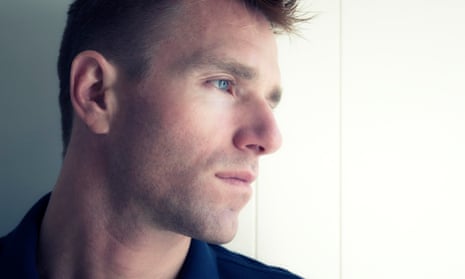A study reveals that an astonishing number of fathers – 13% – experience depressive symptoms during their partner’s pregnancy. Astonishing because I had imagined it would be considerably higher.
Very little research has been done on male reactions to pregnancy and childbirth. Instead we live with a lot of inbuilt assumptions – that the man will be as blissful and anticipatory as the mother expects herself to be, and that when the big day comes his life, like hers, will be transformed, not without difficulty but unquestionably for the better.
Time for a reality check. Becoming a first-time father is many things – terrifying, joyful, nerve-racking, exciting – but unconflicted it is not. Although most men eventually come to savour the fantasy of being a father, they also dimly anticipate the reality – and for a father, childbirth is the bonfire of the vanities.
That is probably a correct way of putting it because, on the whole, men are vain. I don’t know why it should remain so after decades of feminism, but there is something either in the culture or in the male genes that makes men believe they are mystically entitled to be the centre of attention. This is partly born of romantic myth, partly born of the fact that men are given a hero-narrative from birth – that they must be the ones to save the maiden, provide for the family, take risks, do extraordinary things and return to the cave with precious rewards.
A baby puts an end to all that. Fatherhood is anything but heroic. Leave that for the mother. If a man is not prepared – and many, if not most, are not, as everybody lies about it all the time – he is in for a shock. Of course, he’s heard all about changing nappies and getting up in the night and the capacity of babies to scream their lungs out for hours, but all of this, he assumes, will pale against the glowing corona of love and security that will spread around him and his partner.
No doubt for some it happens that way. For others, it doesn’t. After childbirth, a man has to face some hard truths. The chief one is that he is off centre stage in reality and in his own mind. For women, who I am going to risk suggesting are less egocentric and more interested in connection and relationship, this is not such a shock. They pay a different price, particularly if they have a career they love, which often – unfairly – they feel has to take a back seat. Such a choice rarely has to be faced by men. And, of course, mothers are vulnerable to the well-documented horrors of postnatal depression.
But as childbirth approaches, men have to face this simple fact: they are not as important as they thought they were, at least not in the way they thought they were. They are being inched out of the way in favour of the next generation. Birth is a beginning but also an end – the end of a particular male narrative that they can somehow be free, adventurous and an enduring focus for their wife’s romantic feelings. In fact all the wife’s adoration now is going to shift pretty quickly to the child – which is as it should be. Along with this, she will likely be rather more interested in other mothers than her perhaps once idealised husband.
The arrival of a first baby from the point of the view of the father is a massive shift, just as it is for the mother. Antenatal depression is rational enough. The solution? To keep reminding yourself what it can sometimes be hard to believe when you find yourself suddenly living on the fringes of your own life. It’s all worth it in the end – truly.

Comments (…)
Sign in or create your Guardian account to join the discussion